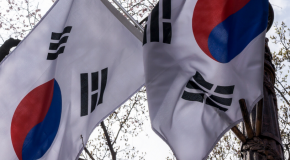2019년 11-12월, The Economist Intelligence Unit은 아시아태평양지역내 희귀질환 인식 및 관리의 과제를분석하는 연구조사의 일환으로, 한국보건의료전문가들 100명을 대상으로설문조사를 실시했다.
한국 설문조사 참가자들은 일반의/일차의료의(45%), 전문의(35%), 간호사(10%), 약사(10%)로 구성되었다. 대부분사립병원 (58%)에 종사하였고, 나머지는국공립병원(12%)과 수련병원(25%)으로나뉘었다.

Jesse is a managing editor for Economist Impact based in Asia, with a focus on healthcare.
Based in Hong Kong, Jesse has been working in Asia for over 10 years. Prior to the Economist Impact, he held roles in medical education, scientific publications and medical communications, working in multinational biopharmaceutical companies with a focus in vaccines and biologic medicines. Jesse has extensive experience researching and collating medical information and working with healthcare professionals and patient organisations to develop insight-driven communications programmes.
Jesse holds a BSc in Anatomy and Physiology from the University of Leeds. His editorial interests include the policy response to emerging public health issues and patient advocacy in infectious diseases.
2019년 11-12월, The Economist Intelligence Unit은 아시아태평양지역내 희귀질환 인식 및 관리의 과제를분석하는 연구조사의 일환으로, 한국보건의료전문가들 100명을 대상으로설문조사를 실시했다.
한국 설문조사 참가자들은 일반의/일차의료의(45%), 전문의(35%), 간호사(10%), 약사(10%)로 구성되었다. 대부분사립병원 (58%)에 종사하였고, 나머지는국공립병원(12%)과 수련병원(25%)으로나뉘었다.

white paper
희귀질환의 집합적인 도전과제가 아시아-태평양 지역을 비롯해 전 세계적으로정책과제로 부상했다. 호주, 중국, 일본, 한국,대만의 신규 및 개정된 보건사회제도 지표,그리고 APEC 의 2018 희귀질환 행동계획(RDAP)을 통해 변화의 필요성에 대한인식이 높아지고 있음을 알 수 있다.
Read more
case study
Read more

video
Read more

As the region begins to get to grips with rare diseases, it will need to address significant challenges, some of which are still emerging. Health and social systems are making progress in many of these areas, but finding solutions remains a work in progress.
This Economist Intelligence Unit study, sponsored by CSL Behring, looks at the nature of the rare disease challenge in the region, how prepared five of its economies are to face it, and reviews the initiatives aiming to provide better care. It draws on a substantial survey of over 500 clinicians, interviews with 16 academic, medical, government and patient experts, and extensive desk research.
In November-December 2019, The Economist Intelligence Unit surveyed 503 healthcare professionals across five Asia-Pacific markets to gauge their understanding of rare diseases and identify the challenges faced by national health systems. Respondents comprised currently practicing specialist physicians (n=172), general practitioners (n=229), nurses (n=40) and pharmacists (n=62). Markets included were Australia (n=103), China (n=100), Japan (n=100), South Korea (n=100) and Taiwan (n=100).
In addition, in-depth contextualising interviews were conducted with 16 expert representatives of clinical practice and patient organisations to inform our research programme and this report. Our sincerest thanks go to the following for their time and insight:
Takeya Adachi, program officer, Agency for Medical Research and Development, Japan Younjhin Ahn, Division of Rare Diseases, Korean National Institute of Health Centre for Biomedical Sciences, South Korea Matthew Bellgard, professor and director of eResearch, Queensland University of Technology, Australia and chair of the Asia Pacific Economic Cooperation (APEC) Rare Disease Network, Australia Gareth Baynam, clinical geneticist and director of the Undiagnosed Diseases Program Genetic Services of Western Australia, Australia Dong Dong, research assistant professor, Chinese University of Hong Kong, Hong Kong SAR Elizabeth Elliott, professor of Paediatrics and Child Health, University of Sydney, Australia Kevin Huang, founder, Chinese Organization for Rare Disorders, China Ritu Jain, president, Asia-Pacific Alliance of Rare Disease Organisation, Singapore Sonoko Misawa, associate professor, Chiba University Graduate School of Medicine, Japan Yukiko Nishimura, founder and president, NPO ASrid (Advocacy Service for Rare and Intractable Diseases’ Multi-Stakeholders in Japan) Min-Chieh Tseng, co-founder, Taiwan Foundation for Rare Diseases, Taiwan Gregory Vijayendran, chair, Rainbow Across Borders Richard Vines, chair, Rare Cancers Australia, Australia Jiaan-Der Wang, director of the Centre for Rare Diseases and Haemophilia, Taichung Veterans General Hospital, Taiwan Yi’ou Wang, secretary-general, Illness Challenge Foundation, China Chao-Chun Wu, deputy director general, Health Promotion Administration TaiwanThis research project was sponsored by CSL Behring. This report was written by Paul Kielstra and edited by Jesse Quigley Jones of The Economist Intelligence Unit.
Other language versions:
Snapshots:
Australia | China | Japan | Korea | Taiwan
无声的苦难:中国大陆罕见病的认知与管理评估
日本における希少疾患の現状: 認知度・QoL向上に向けた課題と取り組み
침묵 속의 고통: 한국의 희귀질환 인 식 및 관리현황 평가
無聲的苦難:評估台灣對於罕見疾病之認知與管理
Video highlights:
English | Simplified Chinese | Japanese | Korean | Traditional Chinese

In November-December 2019, The Economist Intelligence Unit surveyed 100 practising healthcare professionals from Taiwan, as part of an Asia-Pacific analysis of understanding and challenges faced in managing rare diseases.
Our survey respondents from Taiwan comprised general practitioners or primary care physicians (46%), specialist physicians (34%), nurses (10%) and pharmacists (10%). Respondents were split between private (54.0%) and public (21%) or teaching healthcare institutions (25%).
Full reports:
Snapshots:
Australia | China | Japan | Korea | Taiwan
无声的苦难:中国大陆罕见病的认知与管理评估
日本における希少疾患の現状: 認知度・QoL向上に向けた課題と取り組み
침묵 속의 고통: 한국의 희귀질환 인 식 및 관리현황 평가
無聲的苦難:評估台灣對於罕見疾病之認知與管理
Video highlights:
English | Simplified Chinese | Japanese | Korean | Traditional Chinese

In November-December 2019, The Economist Intelligence Unit surveyed 100 practising healthcare professionals from Japan, as part of an Asia-Pacific analysis of understanding and challenges faced in managing rare diseases.
Our survey respondents from Japan comprised general practitioners or primary care physicians (44%), specialist physicians (35%), nurses (6%) and pharmacists (14%). The majority of respondents reported working in private (64%) and public or teaching healthcare institutions (16%).
Full reports:
Snapshots:
Australia | China | Japan | Korea | Taiwan
无声的苦难:中国大陆罕见病的认知与管理评估
日本における希少疾患の現状: 認知度・QoL向上に向けた課題と取り組み
침묵 속의 고통: 한국의 희귀질환 인 식 및 관리현황 평가
無聲的苦難:評估台灣對於罕見疾病之認知與管理
Video highlights:
English | Simplified Chinese | Japanese | Korean | Traditional Chinese
Enjoy in-depth insights and expert analysis - subscribe to our Perspectives newsletter, delivered every week
The Economist Group is a global organisation and operates a strict privacy policy around the world. Please see our privacy policy here
